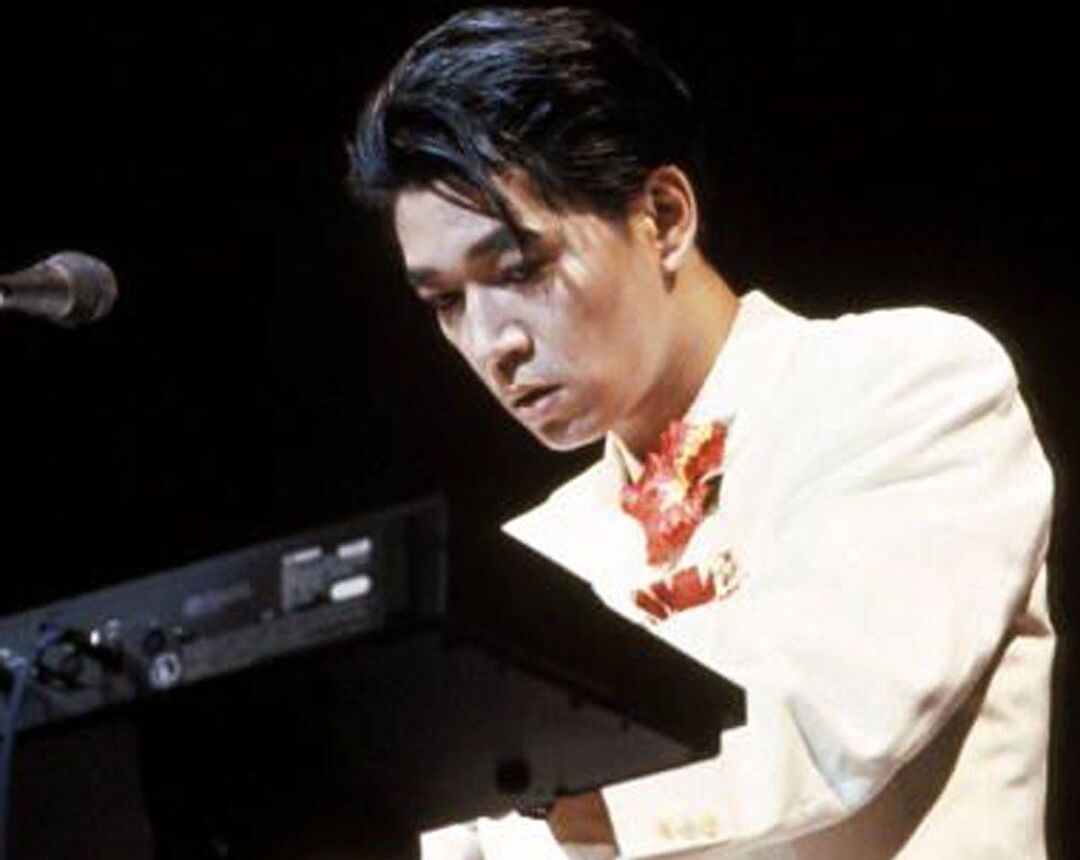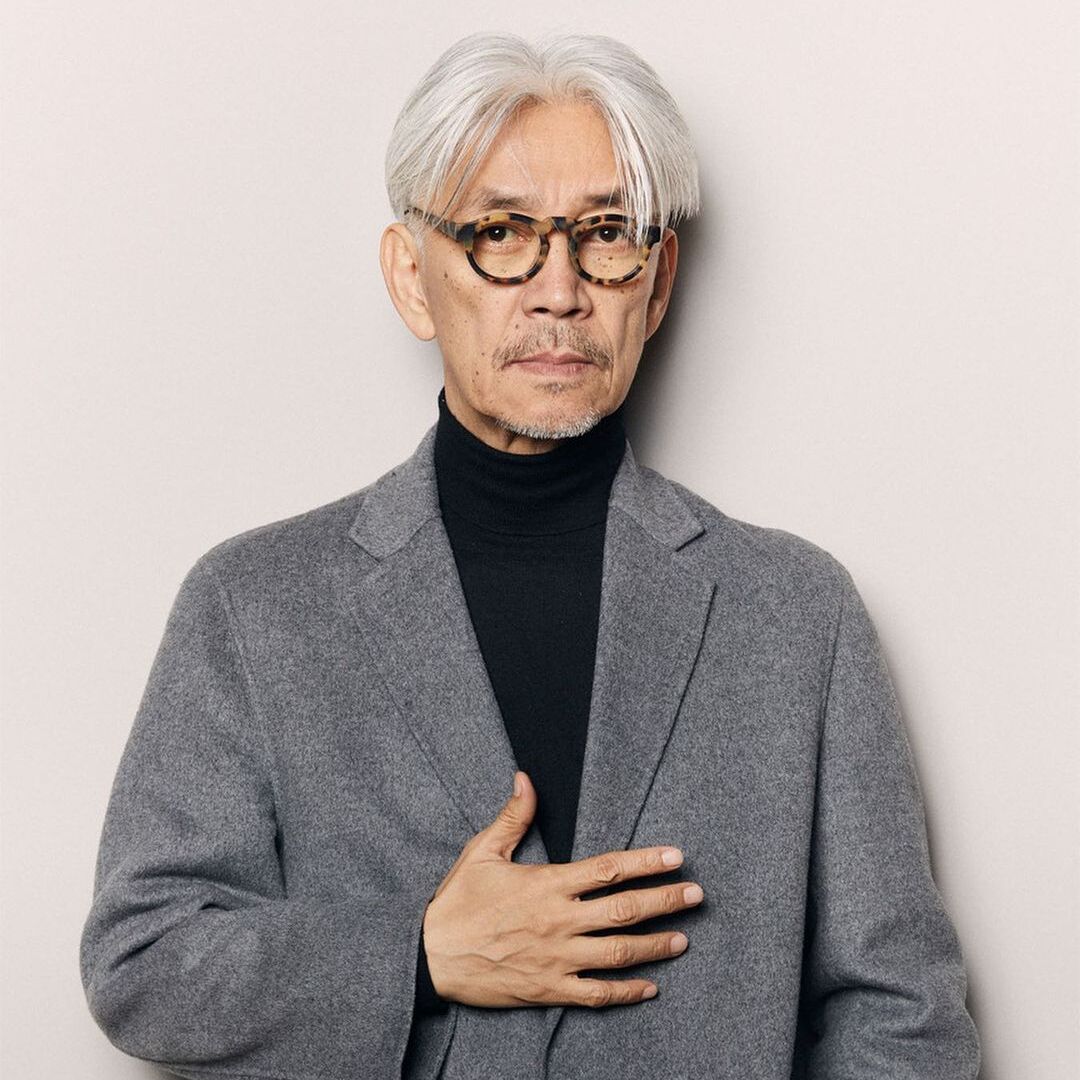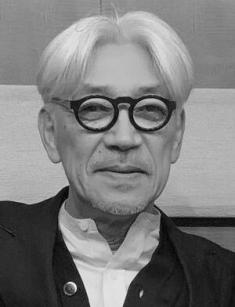- Horoscope: Capricorn
- Net worth: $5 000 000
- Ethnicity: Japanese
- Nationality: Japanese
- Fathers name: Kazuki Sakamoto
- Mothers name: Hiroko Sakamoto
- Education: Tokyo National University of Fine Arts and Music (M.A.)
- Weight: 65.0
- Hair color: Grey
- Eye color: Brown
Ryuichi Sakamoto: biography
Ryuichi Sakamoto was a Japanese musician, composer, and actor. He was best known for his contributions to electronic and ambient music, and for his film scores, which have earned him critical acclaim and numerous awards, including an Academy Award for Best Original Score.
Childhood and youth
Ryuichi Sakamoto was born on January 17, 1952, in Tokyo, Japan. His father was a high-ranking executive at a major Japanese corporation, and his mother was a housewife. Sakamoto showed an early interest in music and began taking piano lessons at the age of three.

As a child, Sakamoto was exposed to a wide variety of music, including traditional Japanese music, classical music, and pop music from the United States and Europe. He was particularly influenced by the music of the Beatles and other British Invasion bands, which he heard on the radio.
Sakamoto attended the National University of Fine Arts and Music in Tokyo, where he studied music composition and electronic music. He was one of the first students in Japan to study electronic music, and he quickly became interested in using synthesizers and other electronic instruments to create new sounds.
Music career
Ryuichi Sakamoto's professional career was marked by a wide-ranging and influential body of work that made him one of the most respected and innovative musicians of his generation.
Sakamoto began his professional career as a member of the electronic music group Yellow Magic Orchestra in the late 1970s. The group's use of synthesizers and other electronic instruments helped to pioneer the use of electronic music in pop music, and their influence can still be heard in the work of many contemporary musicians. Yellow Magic Orchestra disbanded in the early 1980s, but Sakamoto went on to have a successful solo career.
As a solo artist, Sakamoto released numerous albums that showcase his versatility as a composer and musician. His early work combined elements of pop, world music, and classical music, and he continued to explore a wide range of genres throughout his career. Sakamoto's music is known for its blend of traditional Japanese music and Western pop and electronic music, creating a unique sound that is both futuristic and rooted in tradition.

Sakamoto's work in film soundtracks was also a major part of his professional career. In 1983, Sakamoto composed the score for the film "Merry Christmas, Mr. Lawrence," which starred David Bowie. The score, which included the hit single "Forbidden Colours," earned Sakamoto the Cannes Soundtrack Award and brought him international recognition as a film composer. Sakamoto went on to compose the score for the film "The Last Emperor" in 1987, which earned him an Academy Award for Best Original Score, a Golden Globe Award for Best Original Score, and a BAFTA Award for Best Original Film Score. His music was praised for its ability to capture the mood of a scene and evoke emotions in the audience, and he became one of the most sought-after film composers in the world.
Sakamoto continued to work as a film composer, scoring the music for numerous films, including "The Sheltering Sky," "Little Buddha," "Snake Eyes," and "The Revenant." His work as a film composer is notable for its ability to create mood and atmosphere, and for its incorporation of traditional Japanese music and instruments.
Throughout his professional career, Ryuichi Sakamoto remained at the forefront of innovation in music and art, constantly pushing the boundaries and exploring new ideas and sounds. His influence on music and culture can be felt around the world, and he has inspired countless musicians and artists to create their own unique visions and sounds.
Personal life
In his personal life, Sakamoto was married three times. He had a daughter from his first relationship which lasted for two years and came to an end in 1974.
In 1982 Sakamoto married Japanese singer and actress Akiko Yano, and the couple had a daughter, Miu, before divorcing in 2006. He later married his manager Norika and they had two children together.
In addition to his work in music, Sakamoto was also an active social and political activist throughout his career. He was involved in various environmental and human rights causes, and has spoken out against nuclear weapons and the use of nuclear power. Sakamoto also was active in promoting collaboration between artists from different countries and cultures, and worked to promote greater understanding and appreciation of Japanese culture around the world.
Ryuichi Sakamoto faced several health issues over the years. In 2014, he was diagnosed with tonsil cancer, which led him to take a break from his music career to undergo treatment. He made a full recovery and returned to music in 2017, but he continued to be vigilant about his health.
In a 2018 interview with The Guardian, Sakamoto revealed that he had been diagnosed with the autoimmune disorder, multiple chemical sensitivity (MCS), which causes severe reactions to chemicals commonly found in everyday products such as perfumes, cleaning products, and pesticides. This forced him to take additional precautions and limit his exposure to certain environments and products.
Sakamoto posted a message on his official pages on January 21, 2021, in which he shared a link to a letter. In the letter, he revealed that although his throat cancer had gone into remission, he had been diagnosed with rectal cancer and was presently undergoing treatment following a successful surgery.
Death
On March 28, 2023 Sakamoto died from cancer. The news about his death was announced after his funeral on April 2.
Discography
- Thousand Knives of Ryuichi Sakamoto (1978)
- B-2 Unit (1980)
- Left-Handed Dream (1981)
- Ongaku Zukan (1984)
- Esperanto (1985)
- Futurista (1986)
- Neo Geo (1987)
- Beauty (1989)
- Heartbeat (1991)
- Sweet Revenge (1994)
- Smoochy (1995)
- 1996 (1996)
- Discord (1997)
- BTTB (1999)
- Comica (2002)
- Chasm (2004)
- Out of Noise (2009)
- Playing the Piano (2009)
- Three (2013)
- Async (2017)
- 12 (2023)
This is not an exhaustive list and Sakamoto has collaborated with many other artists and musicians throughout his career. Additionally, he has composed numerous film scores, including those for The Last Emperor (1987), The Revenant (2015), and Black Mirror: Smithereens (2019).
Awards and nominations
Awards:
- Academy Award for Best Original Score for The Last Emperor (1987)
- Grammy Award for Best New Age Album for 1996 (1993)
- BAFTA Award for Best Original Film Score for The Last Emperor (1987)
- Cannes Soundtrack Award for Merry Christmas, Mr. Lawrence (1983)
- Golden Globe Award for Best Original Score for The Last Emperor (1987)
- Ordre des Arts et des Lettres (Order of Arts and Letters) from the French Ministry of Culture (1998)
- National Board of Review Award for Best Original Score for The Revenant (2015)
- Person of Cultural Merit by the Japanese government (2019)
Nominations:
- Academy Award for Best Original Song for "The Sheltering Sky" from The Sheltering Sky (1990)
- BAFTA Award for Best Original Song for "Forbidden Colours" from Merry Christmas, Mr. Lawrence (1983)
- Golden Globe Award for Best Original Song for "The Last Emperor Theme" from The Last Emperor (1987)
This is not an exhaustive list, and Sakamoto received many other awards and honors throughout his career for his work as a composer, musician, and activist.





